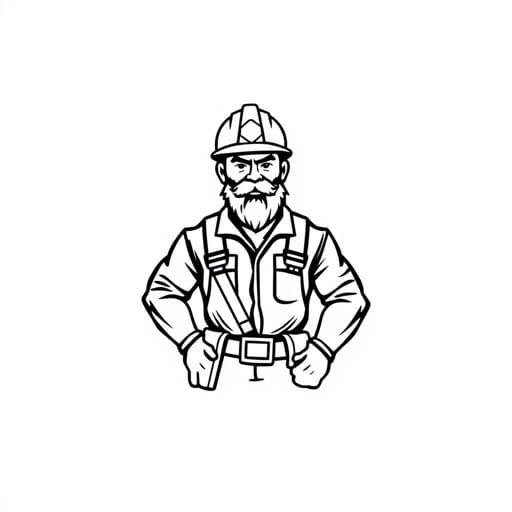The word ‘roughneck’ often sparks curiosity, especially when it appears in conversation, film, or literature. Some people wonder if it’s an insult or a job title, or maybe even both. In modern usage, roughneck has evolved in different directions, depending on context. This topic takes a deep dive into the origin, evolution, and social implications of the word roughneck. It also considers whether the term should be considered derogatory or simply descriptive. Understanding the nuances of this term provides insight not only into language but into shifting cultural perceptions and industries where it remains relevant.
Understanding the Word ‘Roughneck’
Etymology and Historical Background
The term roughneck dates back to the early 19th century. Originally, it was a slang word used to describe someone who was uncouth, unrefined, or rowdy. It often referred to laborers or working-class individuals who performed tough, physical labor and did not adhere to the manners of polite society. In this early usage, ‘roughneck’ did carry a negative connotation, often painting someone as aggressive or lacking in social graces.
Transition to the Oil Industry
Over time, especially during the 20th century, roughneck became closely associated with the oil industry. It came to refer specifically to a worker on a drilling rig typically one performing manual, physically demanding tasks. In this context, the term shed much of its negative connotation and became a badge of honor for many. To be a roughneck meant you were tough, hardworking, and essential to oil rig operations.
Modern Usage and Interpretations
Positive Connotations
Today, especially within the energy sector, being called a roughneck is rarely considered an insult. Workers in oil fields, especially in the United States, often self-identify as roughnecks with pride. The term represents strength, perseverance, and hard labor under extreme conditions. In this context, roughneck is a neutral or even complimentary term.
Negative Connotations Still Persist
Outside of the oil industry, however, the word may still be interpreted negatively. When used metaphorically or in casual conversation, it might imply someone is rough around the edges aggressive, crude, or confrontational. In some cases, calling someone a roughneck can feel like an insult, depending on tone and intent.
- If someone says, He’s a real roughneck, in a workplace that values professionalism, it could be seen as a subtle critique.
- In contrast, among oil rig workers, it may be equivalent to saying He’s one of us.
Roughneck in Popular Culture
Film and Media Representations
Movies and television shows often depict roughnecks as rugged, no-nonsense individuals. Films like Armageddon (1998), where Bruce Willis plays an oil driller, portray roughnecks as heroes with dirty hands and pure intentions. This pop culture image reinforces the idea that being a roughneck isn’t derogatory it’s gritty, honest work.
Music and Identity
In some country and rock songs, the term is used to romanticize blue-collar life. Lyrics may mention roughneck pride, resilience, or working the rigs, which highlights a broader cultural appreciation for physical labor and working-class identity.
Workplace Culture and Self-Identification
The Role of Context
Whether roughneck is offensive or not largely depends on the setting. Among coworkers in the oil industry, it’s simply what you are. But used out of place, or with sarcasm, the word could take on a dismissive tone. Understanding the context is key to interpreting its meaning correctly.
Roughneck as a Job Title
In formal job listings and industry documentation, roughneck is often still used to refer to specific rig labor positions. It’s not just slang anymore it’s a recognized role in oilfield operations, often listed alongside other terms like driller, toolpusher, and derrickman. In this sense, there is no derogatory intent at all. It’s simply a profession.
Language Evolution and Perception
How Words Shift Meaning
Language is fluid. Many words that were once derogatory have been reclaimed or transformed over time. ‘Roughneck’ is a good example of how occupational terms can shift from being negative slang to respected job titles. This shift often happens when the people described by the word reclaim it with pride.
Social and Cultural Implications
The changing perception of roughneck also reflects broader social changes. There is a growing appreciation for blue-collar work and the contributions of laborers in essential industries. What might once have been seen as a slur can now be worn as a badge of honor, especially in communities where manual labor is respected and admired.
Should You Use the Word ‘Roughneck’?
Tips for Appropriate Usage
If you’re unsure whether to use the term roughneck, consider the following:
- Know your audience: Using the term among oil field workers is likely safe and acceptable.
- Consider the tone: If you’re speaking positively about someone’s work ethic, the term may be received well.
- Avoid assumptions: Don’t use the word to stereotype or generalize someone’s behavior or personality.
Use in Writing and Speech
In written content, roughneck can add color and specificity when describing work in the oil industry or a tough, resilient character. However, in formal or professional writing outside of this context, you may want to opt for more neutral terms like laborer, field worker, or technician.
Is ‘Roughneck’ a Derogatory Term?
In short, roughneck is not inherently a derogatory term. While it once had negative implications, it has evolved into a word that carries respect in certain industries particularly oil and gas. It’s a term that blends toughness, labor, and tradition. However, as with many words, context and tone matter greatly. When used thoughtfully and respectfully, roughneck can convey admiration rather than insult. Understanding its history and modern usage helps ensure we use it appropriately and appreciate the hard work it represents.
